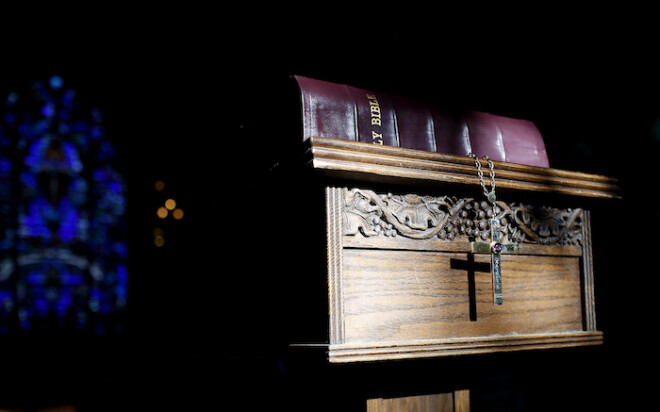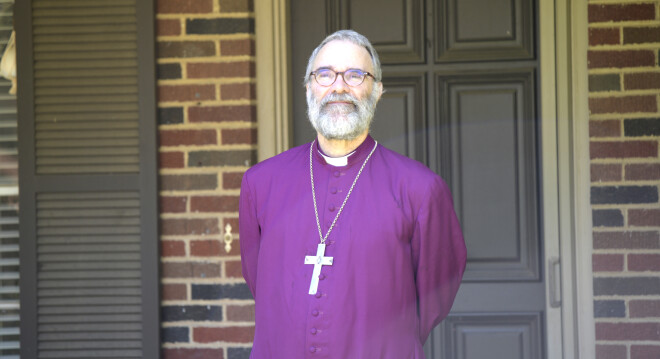Preamble: In one way the pandemic is the ultimate outlier, indicative of nothing broader and higher. It is something which we survive, with as much outreach as we can muster under the circumstances. But crises do also reveal who we are, because we must respond under pressure. We must also act with an eye to what will come next, while at the same time we make sure that we do not deform or transgress our basic commitments and beliefs. Our attention in this first phase has been practical.
In this first phase, all of us have been focused on the practical. This has included financial questions, as well as what I have called ‘talmudic’ ones: what sacramental action is permitted or not? When is an expansion or exception to usual practice excluded? (Since the rabbis made these judgments under conditions of exile the analogy is closer than we might at first suppose). Now, as we move toward a new phase, I want to step back and offer a wider theological vista.
In what follows, I aim to give a coherent way to understand our common worship in this strange time and amidst what may seem like incoherent practices. We have a tradition, a ‘goodly heritage’ (Psalm 16:6), by which we can appeal to the past so as better to understand our present and a future, which by themselves seem like ‘seeing in a glass darkly’ (I Corinthians 13:12).
-
The Eucharist is not only our normative service every Lord’s Day, but also a lens through which we can understand our common life. Obviously our practice of Eucharist everywhere every Sunday presents practical challenges, even in the best of times. It requires, for example, that a priest always be present (which has been the impetus behind alternative tracks for local ordination in recent years, for example). But in circumstances such as ours at present the challenges are multiplied, since we cannot gather, distribution has to be done safely, etc. And if the elderly stay home for an extended period, yet more challenges will present themselves, since the number and definition of ‘shut-ins’ will by definition increase. It is important that Church members be able to make their communion.
Still, there is more to a vision of the Church centered on the Eucharist than only this question of individual reception. The form of the service conforms to the form of the Christian life and vice versa. This is one message of the whole story of the disciples on the road to Emmaus, taken as a whole (Luke 24:13-35). There is a coherence involving our walk turned from discouragement to thanksgiving, our hearing of the Scriptures in light of the resurrection, our sacramental fellowship, and our mission outward as he goes ahead. Spirituality, Scripture, Communion, and Mission are all part of what we mean by the ‘Eucharistic.’ We can look at both the act on Sunday in Church and the whole of our life together, and see an Eucharistic form.
-
The Fermentum reminds us that there is one Eucharistic celebration in the Church across time and space. The Latin word means ‘yeast.’ In the early history of the Church it refers to the practice of sending a bit of bread from the celebration of one bishop to a neighboring bishop’s, or, later, from one papal celebration to the next day’s. (In our own diocesan practice, bread blessed by the bishop is distributed to the clergy of all the congregations). In each case it has been a way of saying that actually there is one celebration of the people of God across time and space. In a sense, congregations, altars, priests, and elements are interchangeable and continuous. Our worship is a single act by all of us, in all our churches, and across the weeks and months. Not only do we bear one another’s burdens, we extend one another’s celebrations in the meantime.
-
‘Proclaim the Lord’s death until he comes.’ (I Corinthians 11:26) It is important to remember how Paul holds up the evangelistic purpose of the Eucharist in this passage. It is a truly evangelical and catholic event. And of course our service contains the proclamation of the Gospel, a sermon, and the creed. Now, at a basic level, our daily office resembles the liturgy of the Word that opens our Eucharist in its basic elements (confession, psalm, lections, creed, intercessions) especially if a homily is included. You might then say that a congregation saying Morning Prayer participates in the Word-centered, proclamation-oriented part of the whole sweep of the Eucharistic action, since their service includes hearing and responding to the Word, creed, prayer, and praise. In other words, if you look at the big picture, those doing the Office in these days, and those partaking of the Eucharist, are still one people up to the same one thing!
-
The spirituality of infrequency. This broader vision is not meant to discount the important of parishioners receiving the sacrament. Even the excellent tradition of spiritual communion was not intended to make physical reception superfluous. However several historical notes are helpful here. First, it has not always been true in Anglicanism that weekly communion has been the normal expectation. Secondly, there has been in the past a greater emphasis on preparation and self-examination. I can offer the personal example of our Anglican brothers and sisters in east Africa, where communion is less frequent due to the smaller number of priests relative to evangelists, and to the evangelical thrust of their theology. However, Christians would look forward to, and prepare for, the Sunday when the priest would come and they would receive. I recall signing cards called ‘My Journey (Safari) with the Lord’ as a record of their receptions. We could well aspire to this sense of expectancy! Infrequency and devout preparation have their own role to play in our tradition.
I am in no way saying that we should reject our own emphasis on frequent communion, but rather that, in our present circumstances, we can draw from another deep well. Furthermore, actual reception is theologically significant. The physicality of the sacrament and the concrete act of reception should serve as a guardrail for the Church’s practice as we make use of computer-based ministry in ways and too an extent new for most of us (though we are also thankful for the way that this has made possible an extension of our outreach and our pastoral care in this season, and we hope to retain the lessons we have learned).
-
Communion/ community. “Having things in common’ is shared by the quality of the community and the sacrament itself (Acts 2:42). Both fell under the category of koinonia, communio (and in our tradition, the idea of common prayer). But in catholic tradition at its best, this sense of connection, fellowship, solidarity, and interdependence extends out into the community at large. A truly catholic theology sees the faith as the ‘soul of society’ (Epistle to Diognetus). Think of the Anglican idea of the parish including all in its bounds. Or think of the devotion to the common good in those early Anglo-Catholic priests ministering in the docks of east London. Likewise it is part of an Eucharistic vision of the Christian life to have a heart and burden for those suffering in our own community. In this crisis in particular, breadlines like the Great Depression call us to action, for we are in solidarity with our neighbors, and an action of sharing in feeding them is itself part of this larger Eucharistic life.
-
The New Anchorite. The Eucharist is an act by the people of God in thanksgiving (that is what ‘Eucharist’ means) for what Christ has done on behalf of the world (that relates to the word ‘liturgy,’ the ‘work for the people’). But of course we have different callings, and so different roles, within the one people of God. That calling of the priest, the deacon, the musician, the intercessor, etc. are familiar with us. But in the medieval Church there were other callings we have largely forgotten. Consider for example the great English saint and laywoman Julian of Norwich. She was an anchorite, a person ‘anchored’ in one place, in her case adjacent to the Church, for the sake of prayer. She chose this calling for life; by contrast many now are ‘anchored’ by necessity, and for a season. Might it be that some of us are called to pray, apart, on behalf of the whole, for a season? Julian received her communion through a slot in the door- we will find different means to enable people periodically to receive, though we all are, like Julian, participating in prayer throughout!
-
Cuaresima/Cuarentena. In Spanish it is easier to see the connection, namely the number 40 for the days of separation (in the first case for prayer as with Jesus in the desert, in the latter for ships coming to port to make sure they didn’t bring disease). However periods of separation, asceticism, waiting, exile, trial, come to an end! God’s people re-emerge- that is part of the original celebration of Easter, in the wake of our Lord’s resurrection. In other words, Lent with its isolation, was related in the history of the Church by means of formation, of catechesis, as prelude, to Easter, the Paschal Eucharistic feast. In this sense even not celebrating (for those abstaining liturgically in this season) even not being able yet to receive, partakes of the Church’s wider Eucharistic reality.
There will be a new day for the Church, though we carry the scars and the trauma, of what happened in-between. God can use these too! We cannot claim to know how this period will change the Church, though it surely will. The patience to which God is calling us is paired by God’s grace with hope in the resilience and endurance of the Church, against which the ‘gates of hell cannot prevail.’ (Matthew 16:18) This is a season, from which we can learn, in which we may suffer, from which we will pass, thanks be to God. Not only our people, but also our tradition of teaching, celebrating, and evangelizing, are being carried in the hands of the Lord.
‘But I trust in you, Lord,….my times are in your hands.’ Psalm 31:14-15. Amen.
“O God, whose blessed Son made himself known to his disciples in the breaking of bread: Open the eyes of our faith, that we may behold him in all his redeeming work; who lives and reigns with you, in the unity of the Holy Spirit, one God, now and for ever. Amen."
+GRS
Summary: In this strange season our usual liturgical practices are constrained, and our responses varied congregation to congregation. But if we think of the Eucharist from a ‘wider lens,’ we can see ourselves in this moment as coherent parts of a greater worshipful whole within the saving economy of God.




